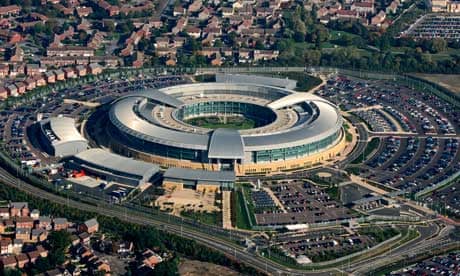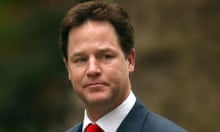Liberal Democrats should be prepared to pull the plug on controversial government plans to give the security services new access to internet data, the party president Tim Farron has said.
In a sign of the deep Lib Dem unease at the plans, Farron said he would be raising the widespread concern within the party with Nick Clegg.
"As a Liberal, I was extremely concerned by the press reports of new surveillance powers potentially to be included in the Queen's speech," Farron wrote in a letter to the Liberal Democrat Voice website.
The party president wrote to the website after it raised concerns about plans to give GCHQ real-time access to Skype, instant message and email data. Lib Dem Voice published an article by Julian Huppert, the MP for Cambridge, who persuaded 15 of his parliamentary colleagues to sign a letter to the Guardian last week raising concerns about the plans.
Farron wrote: "I … agreed very much with Julian Huppert's article on Lib Dem Voice – there must be no question of the authorities having universal internet surveillance powers. We are reasonable people and we should be prepared to look at what will now be draft legislation with an open mind, but we should be prepared to put our foot down and pull the plug if we consider the proposals to be illiberal. We must not as Liberal Democrats fall into a position of trying to amend, unpick or apologise for a piece of authoritarian Tory policy.
"Over the last couple of years we have made some mistakes, which is OK so long as we learn from them. This is our opportunity to put those lessons into practice. Britain must be more liberal and free as a result of Liberal Democrats in power, not less. The proposals as they were first set out undoubtedly cross a red line. We've crossed enough of those already – no more."
Farron's intervention shows that the government could run into trouble over the surveillance plans. But Clegg told the Guardian earlier this week that he was keen for civil liberties groups to be given a chance to challenge the plans when draft clauses are published at around the time of the Queen's speech.
"I will defer to Julian [Huppert], as readily as I will to [Liberty director] Shami Chakrabarti when it comes to being a guardian on the high principle of liberty and liberalism," he told the Guardian. "It is actually something I genuinely care about a lot."
The deputy prime minister added: "We are not simply going to bounce new legislation through parliament. We will publish draft clauses and subject them to proper pre-legislative scrutiny. The route to legislation will be a deliberative, open one which can be subject to real stress testing and scrutiny. That is what proper pre-legislative scrutiny is all about."
Clegg said he saw the need to act because the Regulation of Investigatory Powers Act only applies to more traditional forms of communications. It does not apply to instant messages and Skype calls, which means that officials are unable to monitor the dates and times of such calls by people under suspicion. The authorities would still need a warrant to intercept the contents of such communications.
The deputy prime minister said: "There is a gap opening up in the application of existing statutory powers for the police because of the increasing volume of email and telephone traffic that is now directed via voice over internet protocol means."





